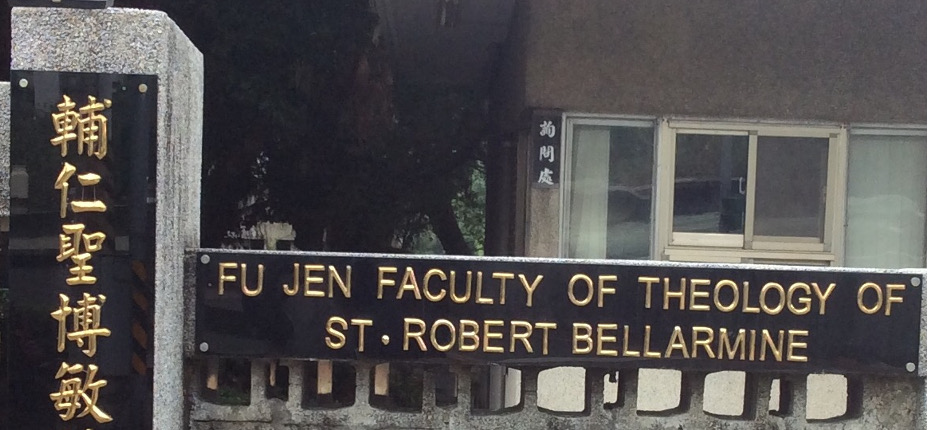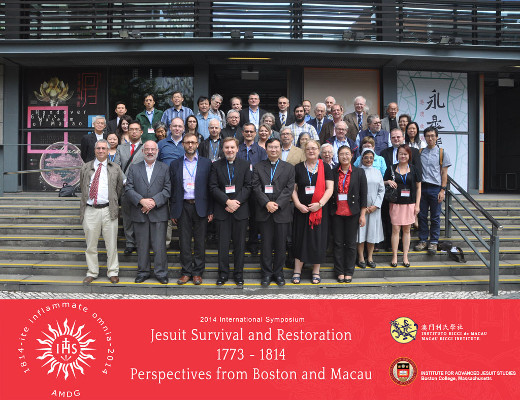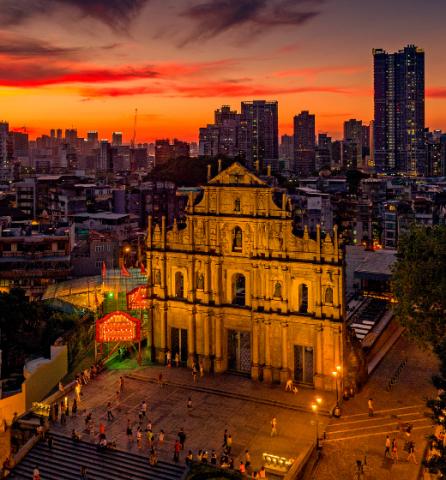 Four centuries after Matteo Ricci arrived in China, Jesuits continue in the way he forged for engaging with the country. Where Ricci shared his expertise in mathematics, cosmology and astronomy, and brought to the Emperor’s court Western clocks, musical, mathematical and astronomical instruments and cosmological, geographical and architectural works with maps and diagrams, today’s Jesuits share their knowledge of philosophy, ethics and history in a university or research setting.
Four centuries after Matteo Ricci arrived in China, Jesuits continue in the way he forged for engaging with the country. Where Ricci shared his expertise in mathematics, cosmology and astronomy, and brought to the Emperor’s court Western clocks, musical, mathematical and astronomical instruments and cosmological, geographical and architectural works with maps and diagrams, today’s Jesuits share their knowledge of philosophy, ethics and history in a university or research setting.
These days they have been considering what opportunities there are in the Intellectual Apostolate in Greater China in light of Fr General Adolfo Nicolás’ letter of May 2014 to all Jesuits in which he invited the Society to a renewal of the Intellectual Apostolate, particularly in the field of research.
Currently the Chinese Province’s Intellectual Apostolate covers Taiwan, Macau and China.
At Fu Jen Catholic University in New Taipei City, there is only one Jesuit among the full-time tenured professors and in a few years, he will retire. Other Jesuits teach part-time and engage in campus ministry at the university including in its new hospital. A mission office in the university coordinates apostolic initiatives for students. Service learning and various exposure programmes in Cambodia and elsewhere help students link their studies with social commitment. Professional ethics courses have also been incorporated across the disciplines. In addition, the university has a Bachelor’s Programme in Catholic Studies and publishes the English-language Lumen: A Journal of Catholic Studies.

Adjacent to the university is the Fu Jen Faculty of Theology of St Robert Bellarmine, sponsored by the Society of Jesus. It is authorised by the Congregation for Catholic Education to confer baccalaureate, licentiate and doctoral degrees in theology and religious sciences. It is the only ecclesiastical faculty in the world offering such studies in Chinese. Thus the mission of theological research, education and formation for ministry reaches out to the entire Chinese-speaking Church. The students include seminarians, sisters, priests and laypeople from Taiwan, mainland China, Hong Kong, Macau and beyond. Fu Jen Catholic University and Fu Jen Faculty of Theology of St Robert Bellarmine have a cooperative agreement and some professors, both Jesuit and lay, offer courses at both institutions.
The Ricci institutes in Taipei and Macau maintain a balance between research of the history of missionaries in China and current issues of applied ethics. Last year a protocol was put in place between the Macau Ricci Institute and the University of Saint Joseph in Macau for common cooperation on conferences and the soon to be launched journal of the Macau Ricci Institute. The new journal will focus on comparative spirituality, moral leadership and social innovation.
A distance education centre of the University of Saint Joseph is about to be set up. It will be linked to the Center of Distance Education of the University of International Business and Economics in Beijing. The content of these courses has focused so far on Responsible Entrepreneurship. The “Massive Open Online Courses” are an efficient way to reach out to many people who otherwise will have no access to higher education.

English teaching is always in high demand as is the teaching of other languages. Some companions have made inroads in China as professors in universities in Guangzhou, Chongqing, Beijing and Shanghai. Some are ordinary professors of Philosophy and Social Sciences and members of a university faculty; others are guest professors in areas such as Philosophy, Engineering Ethics, Business Ethics and Sinology. Within Fudan University’s Faculty of Philosophy, there is the Xu-Ricci Center.
There is also The Beijing Center for Chinese Studies that continues to offer an excellent study abroad programme for students coming from outside China, mostly from the United States. The centre also has a research department and an excellent library of books in English on China.
Finally, there is a growing cooperation between Kuangchi Program Service, the Jesuit video production centre in Taiwan, and some researchers that has resulted in remarkable docudramas on Jesuits such as Giuseppe Castiglione and Johann Adam Schall von Bell.
So what is the way forward? How can we continue our efforts in this field in the face of present realities, as Fr Nicolás asked? Jesuits and lay collaborators in the Intellectual Apostolate in the Chinese Province gathered in Taiwan on February 7 to consider these questions. We conducted an analysis of the Strengths-Weakness-Opportunities-Threats (SWOT) of the different types of Intellectual Apostolate and, in the light of Fr Nicolás’ letter, explored opportunities for improving cooperation in the various areas of research and higher education. We came up with a list of recommendations which has been submitted to the Provincial for his consideration and approval.
Fr Stephan Rothlin SJ
Province Coordinator of the Working Group on Higher Education and Research of the Chinese Province

